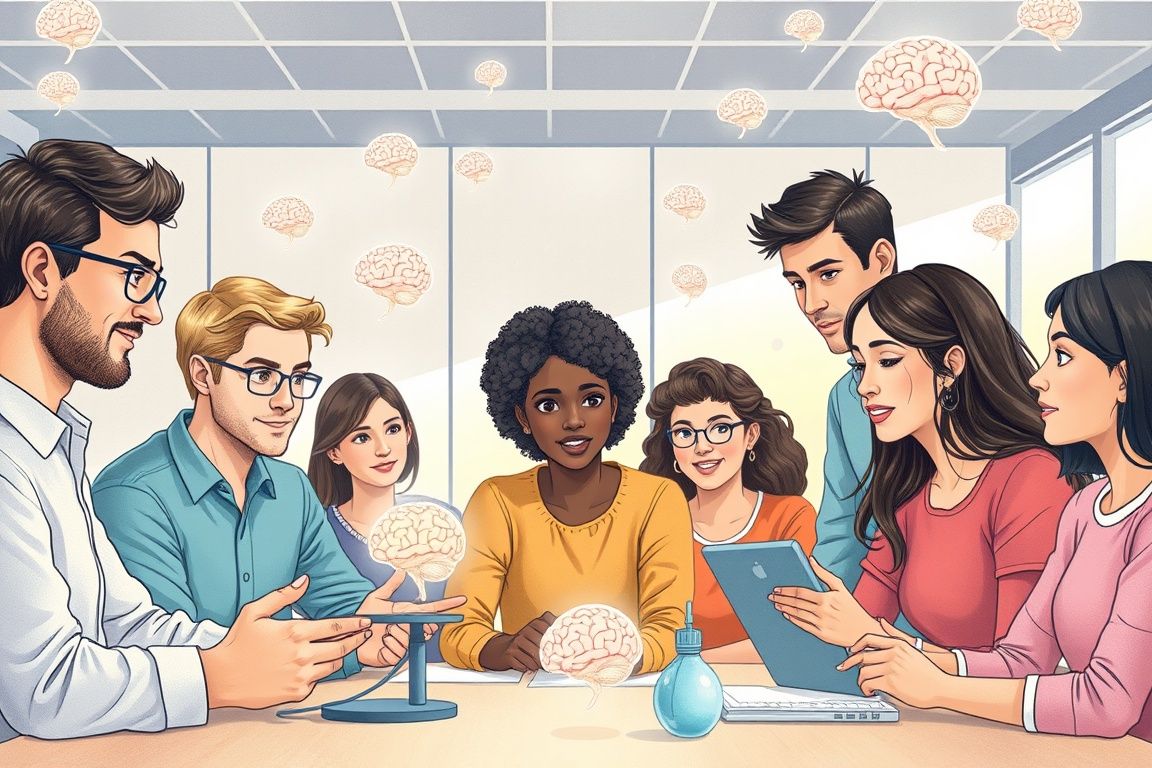Educational Neuroscience
Why It’s Worth It
Gain a deep understanding of how brain functions affect learning, leading to more effective teaching methods.
Learn to implement spaced repetition and active engagement strategies to enhance student memory retention and participation.
Develop skills to design lesson plans that minimize cognitive load and promote socioemotional well-being in students.
Your Learning Roadmap
Foundations of Educational Neuroscience
This module provides an introduction to the field of educational neuroscience. Learners will gain insights into the evolution of the field, its significance in modern education, and the ways in which neuroscience research informs teaching methods. Understanding Educational Neuroscience Historical Perspectives and Key Discoveries Bridging Neuroscience and Classroom Practice
Neurobiology of Learning and Memory
This module explores the neurobiological foundations of learning. Participants will learn about key brain structures involved in memory formation and neural plasticity. The module aims to connect scientific insights with practical implications for teaching. Brain Structures and Functions in Learning Memory Formation and Consolidation Neural Plasticity and Adaptability
Brain-based Teaching Strategies: Spaced Repetition and Active Engagement
This module focuses on actionable strategies such as spaced repetition and active engagement. Learners will be introduced to techniques proven to improve memory retention and student participation. The content connects neuroscience research to classroom practices with clear application steps. Principles of Spaced Repetition Implementing Active Engagement in Lessons Strategies to Enhance Memory Retention
Cognitive Load Management and Learning
This module discusses cognitive load theory and its role in learning as informed by neuroscience. Participants will learn to design lessons that minimize unnecessary mental load. The content provides practical tips for clear, effective, and engaging instruction. Understanding Cognitive Load Optimizing Instructional Design Reducing Overload in Classroom Settings
Socioemotional Learning and the Brain
This module explores the role of socioemotional factors in education. Learners will understand how emotions can affect the learning process and memory retention. The module highlights strategies to create supportive and emotionally balanced learning environments. Brain and Emotions in the Learning Process Strategies for Building Emotional Resilience Creating Emotionally Supportive Environments
Applying Neuroscience in Educational Settings
This final module synthesizes all previous content to guide the application of brain-based strategies in real-world settings. Participants will learn through case studies, design their own curricula, and evaluate their teaching practices using neuroscience principles. The module ties together theory and practice for effective educational reform. From Research to Practice: Case Studies Designing Brain-Based Curriculum Assessment and Evaluation of Brain-Based Strategies
What Users Are Saying
All You Need to Know
Unlock Your Teaching Potential!
AI-guided interactive learning sessions.
Real-time feedback to reinforce concepts immediately.
Flexible learning that fits your schedule.
Active engagement through chat-based inquiries.
Customizable lesson plans informed by neuroscience.
Case studies demonstrating effective applications.

